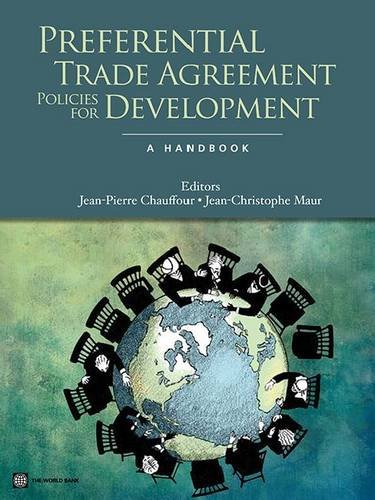Product desciption
Preferential Trade Agreement Policies For Development A Handbook Jeanpierre Chauffour by Jean-pierre Chauffour, Jean-christophe Maur 9780821386439, 0821386433 instant download after payment.
Economists have repeatedly warned against them, NGOs have fought them, and some governments have begrudgingly (at least in appearance) signed them. Yet, in the last twenty years the growth in number of preferential trade agreements (PTAs) has been unabated. Even more strikingly, their scope has broadened while their number was increasing. Deep integration provisions in PTAs have now become ubiquitous. Gaining market access or preserving existing preferences has remained an important motivation for acceding to PTAs. But with the liberalization of trade around the world and the related diminishing size of preferential rents, the growing success of PTAs cannot be only explained by traditional market access motives (even factoring for the possible substitution of tariff for other less transparent forms of protection). Countries are looking beyond market access in PTAs. They are interested in a host of objectives, including importing higher policy standards, strengthening regional policy coordination, locking-in domestic reforms, and even addressing foreign policy issues. This handbook on PTA policies for development offers an introduction into the world of modern preferential trade agreements. It goes beyond the traditional paradigm of trade creation versus trade diversion to address the economic and legal aspects of the regulatory policies that are contained in today‘s PTAs. The book maps the landscape of PTAs, summarizes the theoretical arguments, political economy, and development dimensions of PTAs, and presents the current practice in the main policy areas typically covered in PTAs (from agriculture policy, rules of origin, customs unions, trade remedies, product standards, technical barriers, to behind the border issues related to investment, trade facilitation, competition, government procurement, intellectual property, labor rights, human rights, environment, migration, and dispute resolution). These are also usually the policies driven by powerful trading blocs as they strive to influence the evolution of the global trading system.


